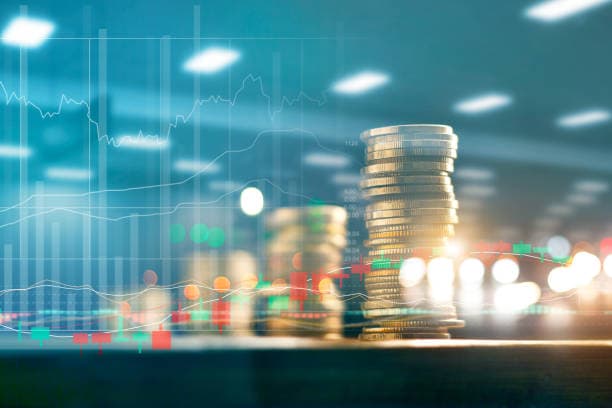How long does it take to mine 1 bitcoin, how much electricity, how much does it cost?
Mining Bitcoin is not only a technical task, but it also involves a lot of time, power and capital costs. In this article, I'm going to walk you through exactly how long it takes to mine a Bitcoin, how much electricity it costs, and what the final total cost is. Whether you're a newbie or an experienced miner, this information will help you plan your mining strategy. Let's explore the fascinating world of Bitcoin mining!

How long does it take to mine a Bitcoin?
The amount of time it takes to mine Bitcoin is determined by a number of factors, the most important of which are the "mining difficulty" of Bitcoin and the performance of your mining machine. The difficulty of mining Bitcoin is adjusted as the overall network power increases. Typically, at the current high levels of network power, it can take several months or more to mine a single Bitcoin.
According to the current Bitcoin mining difficulty, a single miner (e.g. Antminer S19 Pro) will take about 120 days (about 4 months) to mine 1 Bitcoin. If you are using a less efficient miner, this time may be even longer, even more than half a year.
How much electricity does it cost to mine a Bitcoin?
Electricity consumption for Bitcoin mining is one of the most significant costs. Depending on the performance of the miner and the price of electricity in your location, electricity consumption can vary greatly. For example, an Antminer S19 Pro can perform 110 TH/s of hashing per second and consumes about 3250 watts of electricity per hour. Assuming that the average electricity price in Taiwan is NT$3.5 per kilowatt-hour, this could cost close to NT$240 per day.
If we take a high performance miner, the electricity cost for mining 1 Bitcoin may be as high as 150,000 to 200,000 TWD. These figures fluctuate depending on the performance of different miners and the price of electricity.
Frequently Asked Questions Q&A:
- Q:Does the electricity price in Taiwan affect the cost of mining?
A: Yes, the relatively high electricity prices in Taiwan have resulted in a significant increase in the cost of electricity for mining, so choosing the right location for the mine is critical.
What is the total cost of mining a Bitcoin?
In addition to the electricity bill, you also need to consider the cost of the hardware and maintenance of the miner. Generally speaking, a high-performance mining machine such as the Antminer S19 Pro costs around US$12,000 (about 360,000 NTD). If you add in monthly electricity, maintenance and other setup costs, the total cost of mining one Bitcoin is around 400,000 NTD or more.
It is also important to consider the volatility of the price of Bitcoin. If the price of Bitcoin is in a downturn, it may cause the return on mining to drop dramatically, or even affect the viability of mining.
Frequently Asked Questions Q&A:
- Q:Can I get my money back from the equipment I purchased for mining?
A: If the price of Bitcoin is high and the price of electricity is moderate, it is usually possible to get your money back. However, if the price of Bitcoin drops significantly, the payback time will be extended.
How to increase mining efficiency and reduce costs?
The key to improving mining efficiency lies in choosing the right mining machine and reducing electricity costs. Choosing a high-performance mining machine, such as the Antminer S19 Pro, can increase the arithmetic power and reduce the unit power consumption. Choosing a lower-cost power source, such as using solar power or setting up a mine in a cheaper location, is also an effective way to reduce costs.

Joining a mining pool is also a way to increase your mining return. Through a mining pool, you can share the computing power with other miners and get a stable mining return, instead of being unable to earn a stable income due to independent mining.
Mining Environment and Challenges in Taiwan
Although there are many people involved in Bitcoin mining in Taiwan, the cost of electricity is a major challenge for mining in Taiwan compared to some countries with lower electricity prices. Many miners choose to set up mines in places where they don't have to pay high electricity bills, or they choose to use more efficient cooling systems to reduce operating costs.
The government's regulatory policy on cryptocurrency in Taiwan is also in the exploratory stage, and some potential legal risks and policy changes may also have an impact on mining activities. Therefore, it is necessary to pay close attention to the relevant policy developments when conducting Bitcoin mining in Taiwan.
Frequently Asked Questions Q&A:
- Q: Are there any legal risks associated with mining in Taiwan?
A: Bitcoin mining is not completely banned in Taiwan at this time, but the regulatory policy on cryptocurrencies is still in progress, and miners need to understand and comply with the relevant regulations.
Future Trends in Mining
With the difficulty of mining Bitcoin increasing every year, mining will become increasingly difficult for miners in the future. Many miners will choose to upgrade the performance of their equipment or move to other areas where energy is cheaper. With the development of green energy technology, the use of renewable energy sources such as solar or wind power for mining will become a trend in the future.
The value of Bitcoin and mining returns are closely related to the global economic situation. When the global financial market fluctuates, the price of Bitcoin fluctuates as well, which directly affects the feasibility and returns of mining.
Frequently Asked Questions Q&A:
- Q: Does the return from mining fluctuate with the price of Bitcoin?
A: Yes, the fluctuation of the price of Bitcoin will directly affect the return of mining. When the price of Bitcoin is high, mining is more attractive, but if the price falls, the return will decrease accordingly.
Conclusion
To summarize, the time, electricity and cost of mining a Bitcoin are affected by multiple factors. With high-performance miners, it takes about 120 days to mine a Bitcoin, while electricity expenses and hardware investment are also costs that should not be overlooked. The mining environment will become even more complex in the future as technology continues to advance and electricity prices and policies change. For those who intend to participate in Bitcoin mining, understanding the associated costs and planning well are the keys to stable returns.













